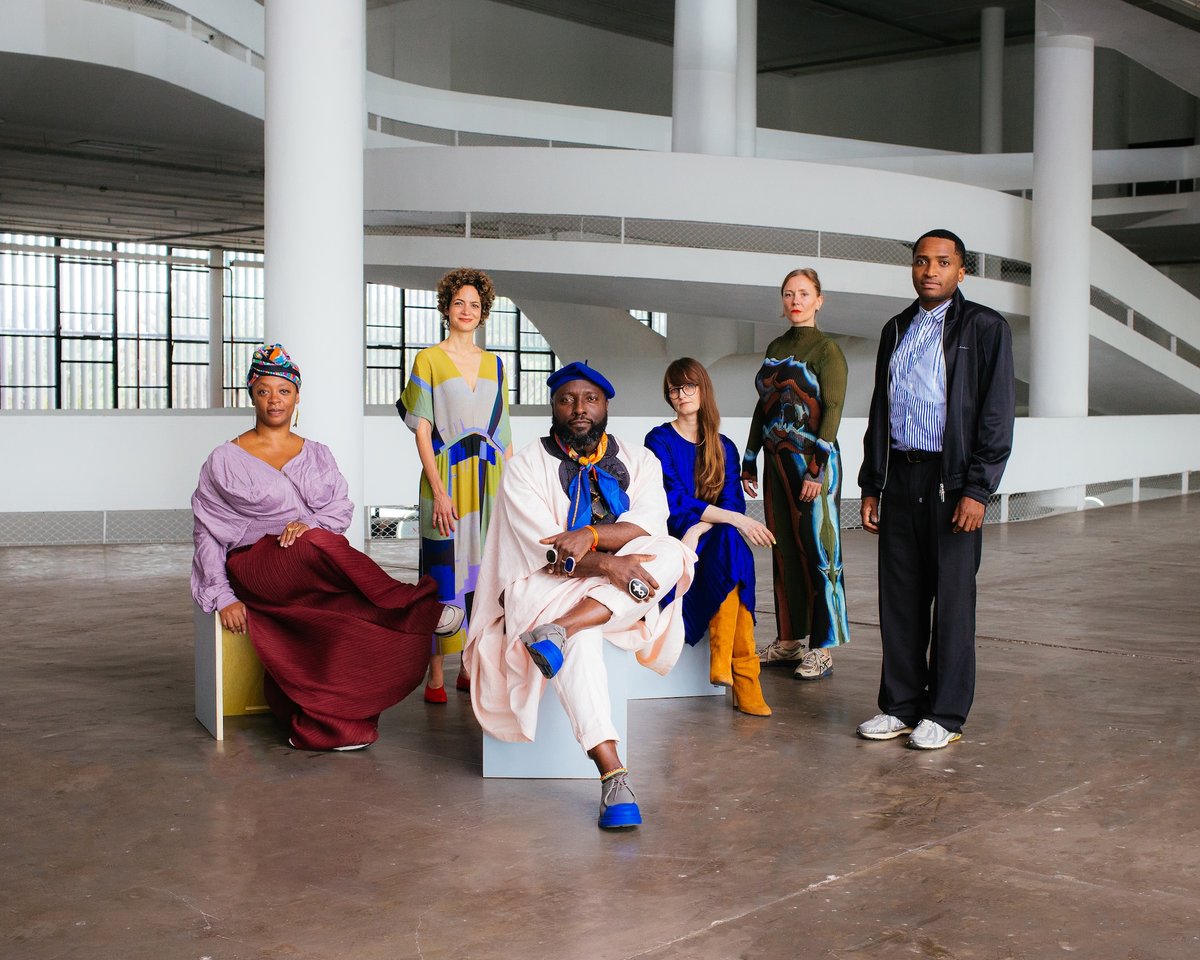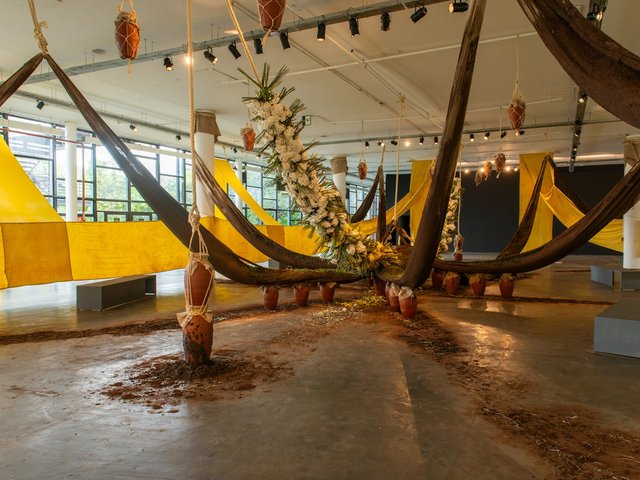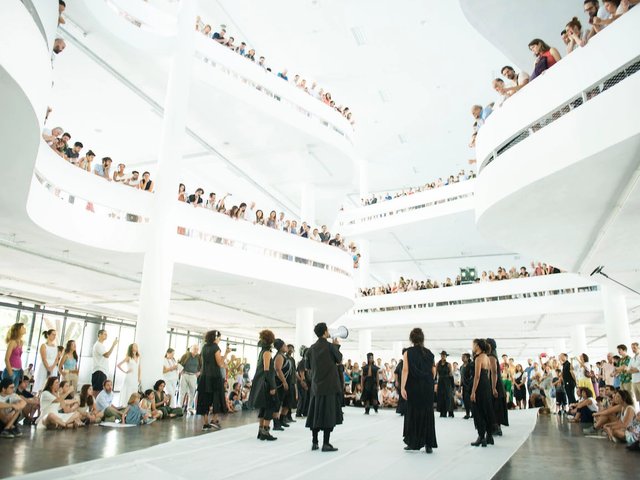The 36th Bienal de São Paulo is titled Not All Travellers Walk Roads—Of Humanity as Practice. It takes its name from a poem by the Afro-Brazilian writer Conceição Evaristo titled Da calma e do silêncio (Of Calm and Silence). The 1990 poem was published in the Cadernos Negros (Black Notebooks) series, an ongoing publication founded in São Paulo in the late 1970s that promotes and preserves African diasporic literature in Brazil, a country where this kind of literature has been historically marginalised in mainstream publishing houses.
The text of the poem “offers a language to speak of the unspeakable and teaches us that silence is not a void—it is a place of accumulation, of ancestry and of interior resistance”, Bonaventure Soh Bejeng Ndikung, the chief curator of the 2025 Bienal de São Paulo, tells The Art Newspaper. “Evaristo’s work invites us to listen to what is often excluded from dominant narratives. In the context of the Bienal, which is often perceived as hypervisible and hypermediated, her poetics push us to carve out moments of stillness and introspection.” The curator says that he and his team asked themselves: “How do we exhibit silence?”
The first part of the title, Not All Travellers Walk Roads, references “those whose paths are nonlinear, whose journeys are erased, undocumented or ancestral”, Ndikung says, while Of Humanity as Practice “insists that to be human is not a fixed state, but a continuous and unfinished act”.
Ndikung worked with the curators Alya Sebti, Keyna Eleison, Anna Roberta Goetz and Thiago de Paula Souza. The biennial team also includes the German publicist Henriette Gallus, in the newly formed role of strategy and communications adviser. “One of the most powerful aspects of this Bienal is the deeply collaborative spirit at its core,” Sebti says.
This year’s biennial features 125 artists, of which 28 are Brazilian. There are also several artists represented who have never exhibited work in the country before—such as Frank Bowling, who will be represented by a career-spanning installation of 25 paintings and works on paper.
Around half of the works in the biennial are new commissions and will be unveiled during the preview on 5 September. These include presentations by the artists Precious Okoyomon, Theresah Ankomah, Gê Viana, Adama Delphine Fawundu, Andrew Roberts, Emeka Ogboh, Laure Prouvost and Myriam Omar Awadi.
Outside of the main pavilion, a new performance programme called Tributaries will have its premiere. It was created in collaboration with the cultural centre Casa do Povo, a São Paulo institution founded in the 1950s and known for its progressive approach. Casa do Povo has “a significant history as a place of resistance”, Goetz says. “It embodies the spirit of this biennial par excellence.”
Casa do Povo’s artistic director, Benjamin Seroussi, and Daniel Blanga Gubbay of the Kunstenfestivaldesarts in Brussels have organised a roster of performances that include rhythmic parades and readings by the Brazilian choreographer Marcelo Evelin. Boxe Autônomo, the singer Dorothée Munyaneza, Alexandre Paulikevitch and Mexa will also perform in the coming months as part of the series.
- 36th Bienal de São Paulo, Not All Travellers Walk Roads—Of Humanity as Practice, 6 September 2025-11 January 2026




